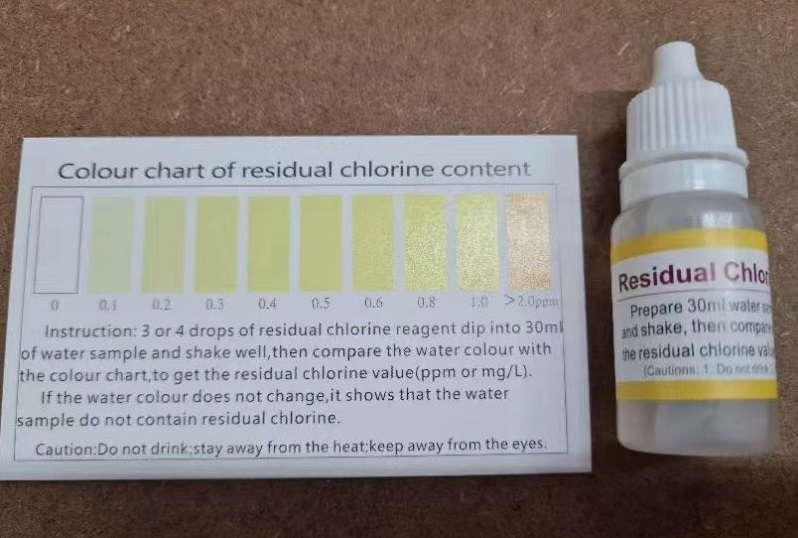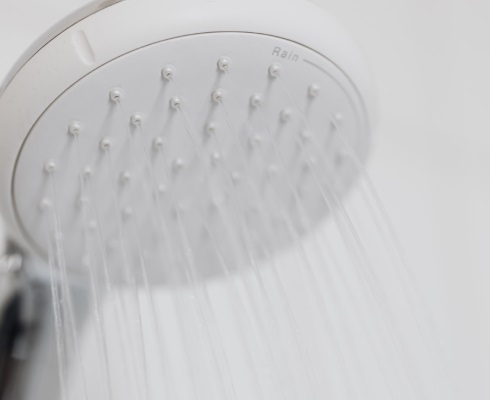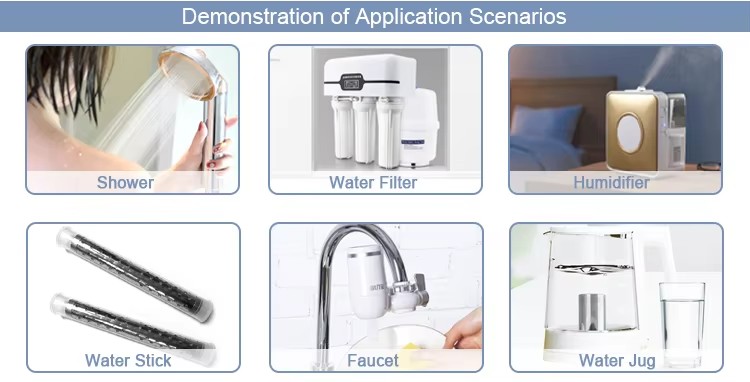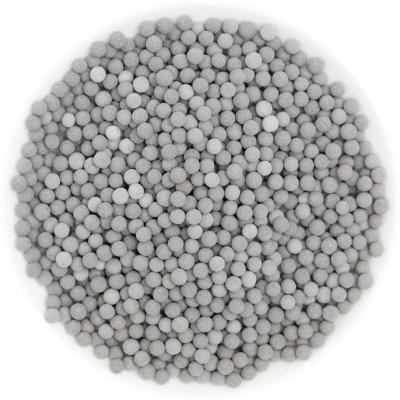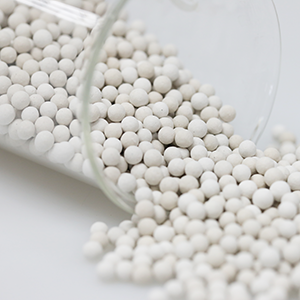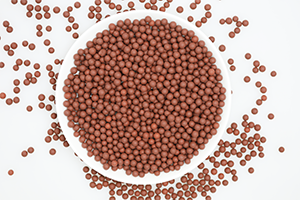The impact of residual chlorine in tap water on human health
In daily life, tap water is our main source of water, and the issue of residual chlorine has drawn much attention.
The Harm of Residual Chlorine in Tap Water
During water treatment, chlorine or chlorine compounds are added as disinfectants to kill bacteria, viruses, and other microorganisms. This process effectively ensures water safety and prevents waterborne diseases, but it also leads to residual chlorine. Residual chlorine includes free residual chlorine (such as free chlorine gas, hypochlorous acid, and hypochlorite that have not reacted with substances in the water) and total residual chlorine (the sum of all forms of chlorine in the water). While residual chlorine continues to disinfect during water distribution and prevents secondary contamination, it also poses potential risks to human health.
How Residual Chlorine Enters the Human Body
Drinking: Directly drinking tap water containing residual chlorine is the most common way people ingest it. Chlorine added during disinfection may remain in drinking water if not fully reacted. Long-term consumption of such water may affect health.
Bathing: Residual chlorine can enter the body in two ways during bathing. First, hot water opens pores, allowing chlorine to be absorbed directly through the skin, affecting skin health. Second, chlorine in hot water easily volatilizes into chlorine gas, which people inhale through the respiratory tract. Prolonged exposure may irritate the respiratory system, causing coughing, sore throat, and other discomforts, and may be more harmful to those with pre-existing respiratory conditions.
Cooking: Using water containing residual chlorine for washing and cooking food is another pathway. Although high temperatures during cooking can decompose some chlorine, part of the residual chlorine remains on food and is ingested. For example, washing fruits and vegetables with chlorinated water may leave chlorine residues on the surface, which then enter the body.
Potential Risks of Excess Residual Chlorine
The harm from excessive residual chlorine is usually chronic and not easily noticeable. Research suggests that long-term drinking of water with excessive residual chlorine may be associated with an increased risk of cancer. While the International Agency for Research on Cancer (IARC) classifies chlorine as a Group 3 carcinogen (not classifiable as to its carcinogenicity to humans due to insufficient evidence), chlorination byproducts such as trihalomethanes (e.g., chloroform) and haloacetic acids (e.g., dichloroacetic acid) have been proven carcinogenic. Therefore, the potential harm from residual chlorine and its disinfection byproducts is a long-term, hidden health threat that requires serious attention.
The Role of ETERNAL WORLD Calcium Sulfite Chlorine Removal Filter Media
Working Principle
High-efficiency chlorine removal: ETERNAL WORLD’s calcium sulfite chlorine removal filter media has outstanding chlorine removal ability, with a removal rate as high as 99.9%. By locking calcium sulfite mineral elements into a nano-ceramic lattice, it precisely controls the release concentration, ensuring long-lasting, stable, and uniform release during use, thereby achieving efficient chlorine removal.
Safe and eco-friendly: The filter media has passed international NSF quality and safety certification as well as SGS food safety certification, meeting food-grade safety standards. This ensures safety in use and reflects its eco-friendly characteristics, allowing people to use it with confidence without worrying about new safety hazards.
Durable and long-lasting: With high hardness, the media is not easily broken and does not produce dust, effectively avoiding secondary pollution during use. Its controlled-release property ensures sustained chlorine removal over a long period, maintaining reliable performance.
Application Scenarios
Household water purifiers: Widely used in home water purification devices to effectively remove chlorine from tap water, providing safe and healthy drinking water for daily needs.
Faucet filters: Can be directly installed on faucets, easy and quick to set up, instantly removing chlorine from water used for washing and daily activities.
Children’s bath packs: Since children’s skin is more delicate and prone to chlorine irritation, these filters are used in bath packs to protect children’s skin health and prevent chlorine-related harm during bathing.
Commercial water purifiers: Applied in commercial environments with high water usage, ensuring safe water quality in restaurants, offices, and other public spaces.
Pet water dispensers: Pets’ health also matters. Applied in pet drinking fountains, the filter ensures clean, chlorine-free water, protecting pets’ health.
Although residual chlorine in tap water does pose certain health risks, the effective use of ETERNAL WORLD Calcium Sulfite Chlorine Removal Filter Media ensures safe and healthy water for various needs, allowing people to use tap water with greater peace of mind.
